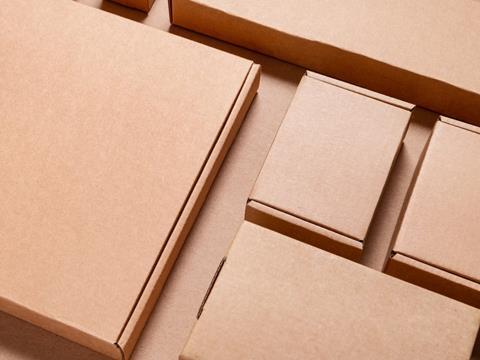
According to a study conducted by Graz University of Technology in Austria, fibre-based packaging material can be recycled at least 25 times without losing its mechanical or structural integrity.
The study set out to find how a fibre blend used for the production of white lined folding boxes fared over 25 recycling cycles. While a previous study – which focused on the paper grade structure used to produce corrugated board – found a 5% to 10% decline in the material’s mechanical properties over the same duration, Graz University’s more recent research demonstrated “no negative effect on the mechanical properties” of unfinished and uncoated cartonboard recycled at least 25 times.
Factors including the material’s innate strength, crush resistance, and swelling capacity were examined across the study. According to the report, “the swelling capacity of the fibre (represented here by the water retention capacity) also shows no clear negative trend” during 25 recycling cycles, mirroring the results found for the material’s mechanical properties.
Rene Eckhart, senior scientist at Graz University of technology, explains that during the 25 cycles, “When it comes to the mechanical properties, we hardly saw any effect at all.
“I wouldn’t even say that 25 is the limit.”
Therefore, the report concludes that “in principle […] it can be clearly stated on the basis of this study that the fibre itself allows recycling over 25 cycles without further difficulty and no limiting trend can be foreseen in this study.
“The results show that folding boxes represent a highly sustainable packaging solution that can seemingly be recycled any number of times and whose number of recycling cycles is limited mainly due to the waste paper collection rate and the losses that occur during cleaning of the fibre material.”
Pro Carton, the European Association of cartonboard and carton manufacturers, suggests that the report could prove that paper and board fibres are “more durable than previously considered”.
Winfried Muehling, general manager of Pro Carton, comments: “The findings resolutely draw a line under a common myth that fibre-based packaging can only be recycled four to seven times before it loses integrity.”
Eurostat figures place the recycling rate of paper, board, and cartonboard at around 85% in Europe. The 4evergreen alliance has set a cross-industry goal to raise the overall recycling rate of fibre-based packaging in Europe to 90% by 2030.
Muehling adds: “For our industry, it is crucial to collect, sort and recycle all fibre materials in the market. Virgin and recovered fibre are equally important for the circular economy, which is something many brands and retailers are looking to support.”
Meuhling has previously written for Packaging Europe on the importance of cartonboard as a packaging material that can be recyclable and made from renewable materials. In particular, Meuhling welcomed the deal made at CO26 to end and reverse deforestation by 2030 in line with the cartonboard industry’s own commitments to accountability, adding that sustainable practices would be key to making a “real difference to the world we live in today and in the future”.
However, the cartonboard industry faces challenges beyond meeting its sustainability goals going forward, according to the European Carton Makers Association (ECMA). While the sale of food and beverage packaging caused demand for folding cartons to spike in 2021, COVID-19 and a disrupted supply of raw materials could lead to a sharp increase in prices and lead times for the industry.













